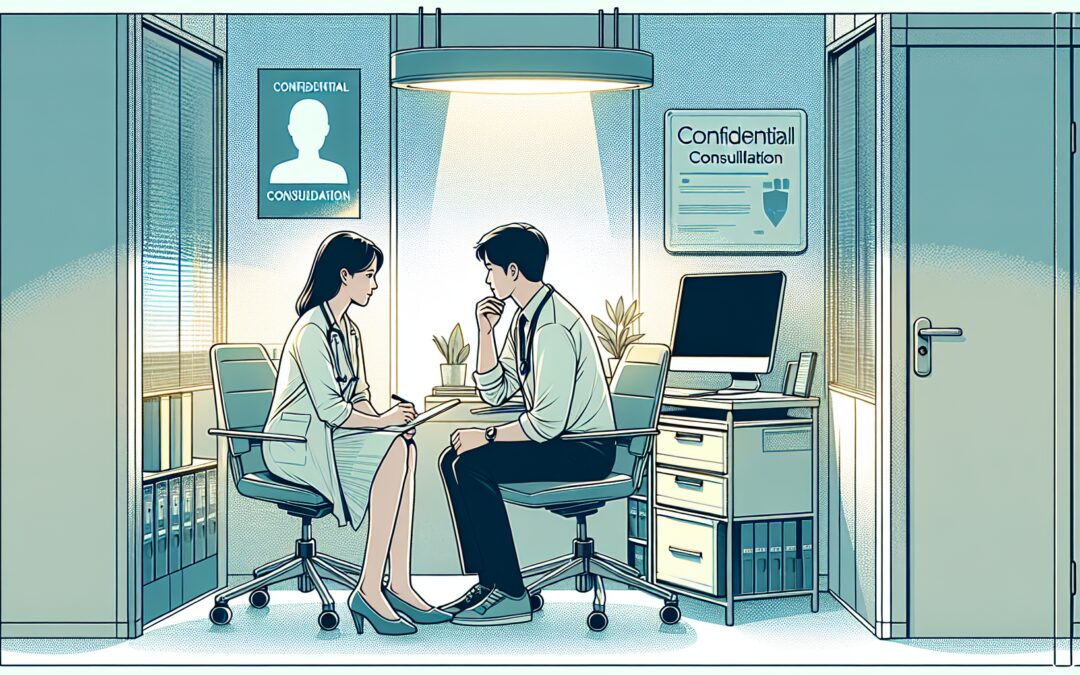In the realm of healthcare, one principle stands above many others: patient confidentiality. The promise to keep a patient’s information private is not just an ethical mandate; it’s a core component of trust in the healthcare system. However, safeguarding this confidentiality is a complex challenge, especially in the age of digital medical records and expansive data sharing. Understanding why protecting patient confidentiality is crucial and how it can be effectively protected is essential for all medical professionals.
The Importance of Patient Confidentiality
Patient confidentiality entails protecting personal health information from unauthorized access, use, or disclosure. This goes beyond mere legal requirements; it strikes at the heart of the doctor-patient relationship. Here’s why it’s so important:
Building Trust in the Healthcare System
Trust is the foundation of the healthcare system. Patients need to feel assured that the intimate details they share with their healthcare providers remain confidential. This assurance encourages open communication, ensuring that medical practitioners have all the information they need to make accurate diagnoses and offer effective treatment plans. Without trust and the expectation of privacy, patients might withhold critical information out of fear of exposure or misuse of their data, ultimately compromising their care.
Legal and Ethical Responsibilities
Virtually all healthcare providers are bound by legal and ethical standards that mandate the protection of patient information. This includes regulations like the Health Insurance Portability and Accountability Act (HIPAA) in the United States, which imposes stringent requirements for the protection of patient health information. Breaching these responsibilities can result in severe legal repercussions, financial penalties, and professional disciplinary actions.
Preventing Discrimination and Stigma
Patients often share sensitive information such as mental health conditions, sexually transmitted infections, or genetic predispositions. If such information were to be leaked, it could lead to discrimination in employment, insurance, and social stigmatization. Safeguarding patient confidentiality helps to ensure that individuals are not unfairly judged or disadvantaged based on their medical history.
Maintaining the Integrity of Medical Research
Confidentiality is also crucial in the context of medical research. Researchers often require access to patient data to develop new treatments and understand disease patterns. Safeguarding this information ensures that patients are willing to participate in research endeavors without fear that their personal health details will be misused or exposed.
Challenges to Patient Confidentiality
Despite the recognized importance, protecting patient confidentiality faces numerous challenges. These include:
Digital Record Keeping
The shift from paper to electronic health records (EHRs) has streamlined healthcare but also introduced new vulnerabilities. Cybersecurity threats, such as hacking and data breaches, continually pose risks to patient data. Ensuring that digital records are adequately protected requires robust security measures and constant vigilance.
Data Sharing Among Health Institutions
Collaborative healthcare often necessitates the sharing of patient data between various institutions and practitioners. While this can enhance patient care, it also increases the risk of information being accessed by unauthorized persons. Establishing secure data-sharing protocols is essential to mitigate this risk.
Human Error
Human error remains a significant risk factor. Instances such as misplacement of physical records, accidental sharing of files, or discussing patient information in non-secure environments can compromise confidentiality. Continuous training and awareness programs for healthcare staff are vital to minimize these risks.
Steps to Safeguard Patient Confidentiality
Given the challenges, multiple strategies can be employed to fortify patient confidentiality:
Implementing Robust Security Measures
Healthcare institutions must invest in advanced cybersecurity measures. This includes encryption of electronic records, regular security audits, and use of secure communication channels. Continuously updating security protocols to counter emerging threats is also critical.
Training and Awareness
Regular training for healthcare staff on the importance of patient confidentiality and best practices for protecting information is indispensable. Awareness programs can help employees understand potential vulnerabilities and the steps needed to prevent them.
Clear Policies and Procedures
Establishing and enforcing clear policies on patient information handling, access, and disclosure helps ensure that everyone in the healthcare environment understands their responsibilities. This should include guidelines on how and when data can be shared and protocols for reporting breaches.
Patient Involvement
Engaging patients in understanding their rights to confidentiality and educating them on how their data is handled can bolster trust. Patients should be informed of their ability to access their records, make corrections, and understand the circumstances under which their information may be shared.
Conclusion
Patient confidentiality is a cornerstone of ethical healthcare practice. By building trust, fulfilling legal and ethical obligations, and preventing discrimination, the importance of safeguarding patient information cannot be overstated. Despite the extensive challenges, healthcare providers must commit to implementing comprehensive strategies to protect patient data, ensuring that the confidence patients place in them is never compromised. Through continued vigilance, training, and the use of advanced technologies, the essential promise of confidentiality can be upheld, benefitting patients and the healthcare system as a whole.


